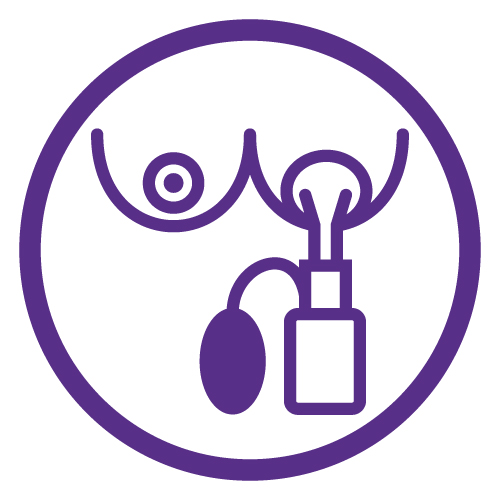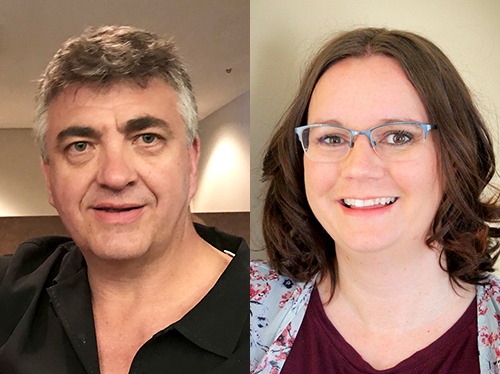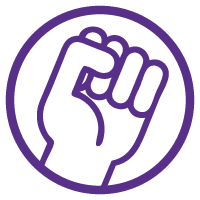 IBCLC Detailed Content Outline: Clinical Skills / Education and Communication Focused CERPs - Section VII B
IBCLC Detailed Content Outline: Clinical Skills / Education and Communication Focused CERPs - Section VII B
Access CERPs on Clinical Skills / Education and Communication for the IBCLC Detailed Content Outline recertification requirements. On-demand viewing of the latest Clinical Skills / Education and Communication focused IBCLC CERPs at your own pace.
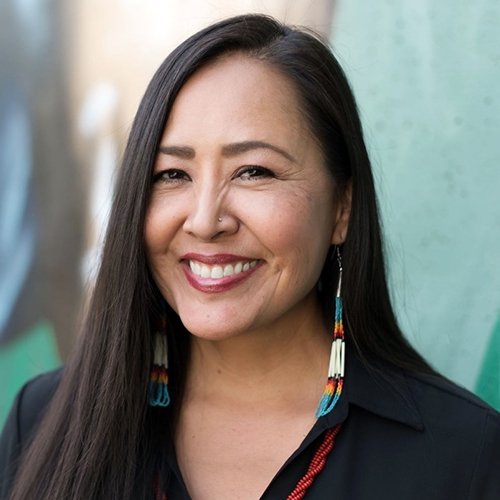
The Power of Story Telling: A Tool for Addressing Historical Trauma and Breastfeeding

Kim is born for Naakaii Diné (Mexican People) and from Tsi’naajinii (Black Streak People) clans. Born in Tuba City, maternally from Tolani Lake, AZ located in the southwestern area of the Navajo Nation. Growing up on and off the Navajo Nation, and residing in various tribal communities throughout her life, Kim is passionate about utilizing her education and experience to promote healthy living through kinship values.
Kim is a International Board Certified Lactation Consultant and has over 10 years of experience in peer-counseling, clinical and educational lactation. Kim’s work has been inclusive of Tribal and culturally diverse communities serving the needs of prenatal, newborns, and post-partum mothers and families. She is a Co-Instructor for the Indigenous Breastfeeding Counselor training course providing cultural breastfeeding and clinical education to those that can serve their community throughout Turtle Island. She also independently consults with Changing Woman Initiative out of New Mexico, a free access birth center serving Indigenous women to reproductive wellness. She is serving her second term on the United States Breastfeeding Committee Board of Directors. Currently, Kim continues to work at Valley Wise Health Medical Center as a Hospital lactation consultant for eight years and is serving the front lines assisting families and COVID mothers during the pandemic with breastfeeding and hospital policies. She also implemented the first Arizona Lactation Mentorship Pilot Program at Valleywise Hospital mentoring two student interns. This allows access to clinical hours to create strategic initiatives to bring BIPOC diversity, equity and inclusion to the field of lactation.
Currently a member of the Advisory Council Committee for the Navajo Nation Breastfeeding Coalition; she will the Urban Dine’ Community Representative for the Phoenix area. This new role will include breastfeeding home visits and telehealth lactation support serving the urban and telehealth rural BIPOC community. She recently collaborated with Wellness Within Reach also providing breastfeeding education and one on one breastfeeding support. Kim's extensive experience in this field has led to opportunities in consulting, which along with her husband synthesized their consulting business in Tribal Indemnity. Within three years, Tribal Indemnity has assumed responsibility of complex projects and strategic planning with one of the largest Tribes in Arizona. She recently established her own small business, Indigenous Breastfeeding Az, dba.
Kim enjoys spending time with her husband of twenty-three years and three daughters of whom she breastfed until they were 2 years old. She also loves early morning runs, hiking, boxing and yoga.
Native people are natural story tellers. This method of knowledge exchange has been around for thousands of years. Story telling is a fundamental tool that has been used to pass down information, share ideas and a teaching opportunity within Indigenous communities. It allows understanding of lived experiences and consequences to sustain and restore balance for many generations. An important component of lactation counseling is we can learn from an Indigenous lens from listening to one’s story when addressing breastfeeding families.
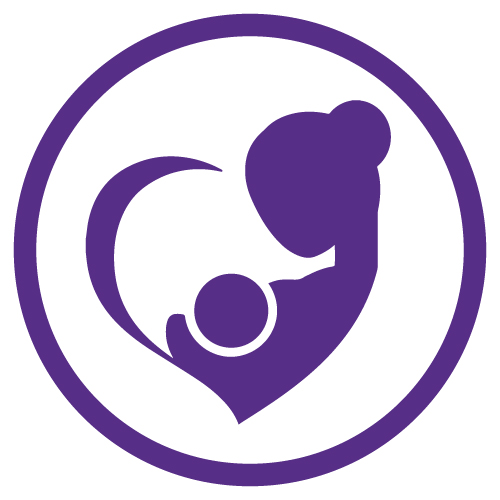
View Details / Enroll
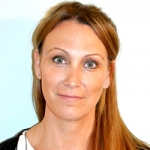
The Power of Storytelling - The Human Experience in the Neonatal Intensive Care

Jodi is registered nurse with a strong passion for preemies, developmental care in the NICU, parent teaching, and education. When not at the bedside, Jodi is hard at work offering support and lending a virtual hand to parents of NICU babies through her organization Peekaboo ICU. Jodi is the president/CEO as well as a Family Support Specialist that heads up the organization’s Journey Bead Program- offering a tangible way to track, document, and celebrate milestones in the NICU. Jodi attended college in Ontario Canada where she completed her nursing degree. After college, Jodi earned a number of certification in neonatal nursing including her RNC-NIC, Developmental Care Specialist certification, and an Advanced Certification in Neonatal nursing while attending BCIT’s Bachelor of Science in Neonatal Nursing degree program. Jodi is currently working towards her Masters of Science in Nursing-Care Coordination degree through Capella University.
Storytelling is the foundation of the human experience and can be an extraordinarily powerful tool used to connect families and healthcare providers in the neonatal intensive care. The NICU is a fast-paced, high stress environment so it’s easy to lose site of the story, but it is the story that can make a difference, not only to the families you serve, but to you as well. It is through storytelling that a compassionate, real approach to care and medicine will bring change to the NICU experience, increase patient satisfaction, and decrease burnout and compassion fatigue. In this presentation you will learn how to develop more empathetic relationships with families on the basis of a deeper understanding of their human experience. Follow Jodi as she explores the principles of storytelling, evaluates the use of narrative medicine in NICU education, and teaches ground breaking strategies to recreate a positive and profound NICU experience through the power of human connections.
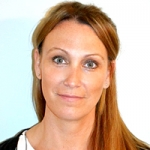
View Details / Enroll

View Details / Enroll
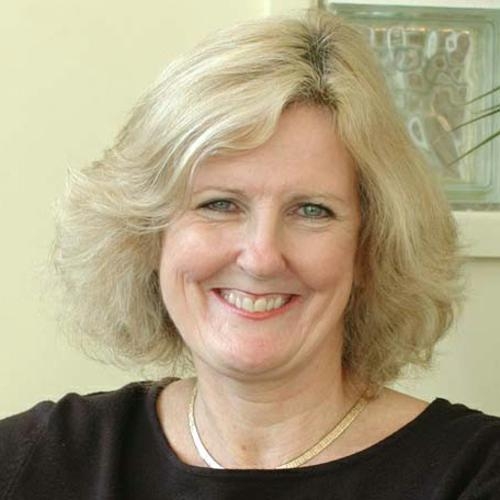
The Process of the Listening Visit – Challenges and Successes

Jane has worked in London, Swansea, Bahamas and Oman, as a Mental Health Nurse, Registered Nurse and Health Visitor. She retired from her last post as Senior Lecturer in Public and Mental Health, and now has honorary status. Jane was the first health visitor to be made the President of the United Kingdom Marcé Society and then the International Marcé Society for Perinatal Mental Health. She is currently on the Executive Board of the Marcé Society and is the Director of her training company in Perinatal Mental Health. Many of her courses have been accredited by the Continuing Professional Development Service. Jane is also working closely with the All Wales Perinatal Group and has been involved in many national and international groups.
Topic: The Process of the Listening Visit – Challenges and Successes - [View Abstract]
Employing the philosophy of the Listening Visit can be a daunting task for some practitioners as it contravenes the need for prescriptive interventions. The key to the Listening visit is empathetic responses, developed by paraphrasing, reflecting and summarising what the parent has said. The clear understanding of the difference between thoughts and feelings can help clarify the parent’s reasoning. Sound interpretation of the parent’s emotions, experiences and subsequent behaviours, can convey thoughts from a superficial to a more intense level. Maintaining this attention to detail allows the parent to remain focused, and, as a partnership, the mother and health worker can explore coping strategies, problem solving and cognitive behavioural techniques. It is important to consider the mental well being of the Practitioner and this is explored to ensure that they are also aware of their own thoughts and feelings.
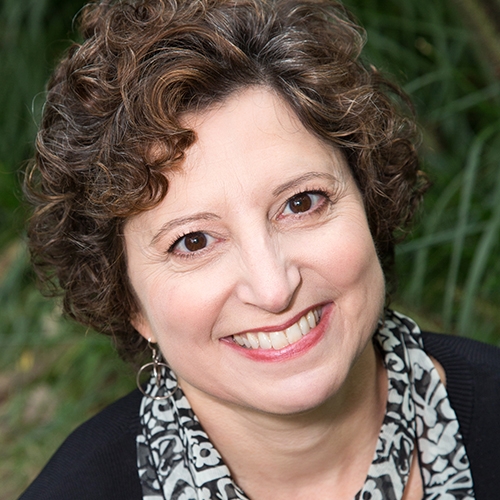

Alyssa has been helping parents and babies with breastfeeding since 2002, first as a La Leche League Leader and since 2009 as an International Board Certified Lactation Consultant.
Alyssa works in private practice serving clients worldwide, primarily through telehealth. She is the author of Breastfeeding Without Birthing: A Breastfeeding Guide for Mothers Through Adoption, Surrogacy, and Other Special Circumstances and a professional supplement to the book, The Breastfeeding Without Birthing Professional Pack online training.
Alyssa has authored articles for The Journal of Human Lactation: The Three Step Framework for Inducing Lactation and Successful Co-Lactation by a Queer Couple: A Case Study. She has also authored articles for La Leche League’s Leader Today and Breastfeeding Today magazines, and Adoptive Families magazine. She is an international speaker on the topics of inducing lactation, relactation, and other related topics. Alyssa is the proud mother of three breastfed children, two by birth and one by adoption. She lives in St. Louis, Missouri, USA.
Topic: Demystifying Inducing Lactation: How Lactation Happens Without Pregnancy and Birth - [View Abstract]
Topic: ReLATCHtation: Transitioning the Exclusively Bottle-fed Baby to Nursing - [View Abstract]
Topic: Supplementation: A Goldilocks Dilemma - [View Abstract]
Topic: The Proficient Pumper - [View Abstract]
Many breastfeeding parents rely on a breast pump to help provide milk for their babies when they are separated or not feeding directly from the breast for other reasons. Others will use a breast pump to bring in or grow their milk production. Some of these parents may find pumping uncomfortable. Many others have difficulty expressing enough milk to meet their babies’ needs. There are also those who produce an overabundance of milk while pumping. This session addresses all of these parents by providing ideas for making pumping as effective, efficient, and comfortable as possible.
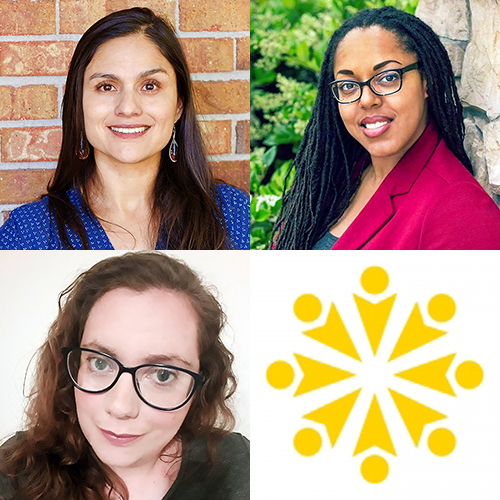

Paulina Erices is the mother of three multicultural Latino children and Project Director for Lifespan Local. Paulina earned her BS in Psychology from the Pennsylvania State University, a MS in Organizational leadership from the University of Denver and is completing her PhD in Health and Behavioral Sciences at the University of Colorado - Denver. Paulina has over 18 years of experience working with families with young children. As a Maternal Child Health specialist for Jefferson County Public Health, she developed a NICU follow-up home visitation program and the pediatric emergency preparedness plan, co-founded and coordinated the Conectando Network (former Adelante Jeffco), established community navigation and lactation support groups focused on the Latino Spanish speaking community, and lead other initiatives to support leadership and partnerships among communities and organizations. During the COVID-19 pandemic, she managed the new program Whole Community Inclusion to ensure the pandemic response and recovery implementation included health equity practices that recognize the needs and the strengths of priority populations in the county. Her areas of current work include promoting perinatal and infant mental health along the continuum of care; building community capacity to navigate health and education systems; facilitating organizational change to embrace linguistic and culturally responsive practices; and establishing community-placed participatory programs to strengthen communities. She likes to be with people, learn from and with others, and connect passions for meaningful work.
In 2014, Ghanaian-American mother and photographer, Vanessa Simmons authored the Normalize Breastfeeding™ movement to address the taboo of public breastfeeding in modern society. Her mission was to document diverse variations of normal infant feeding, across cultures and delivery methods of human milk.
Through Simmons' viral blog, her photographic speaking tour, philanthropy, and artistic inspiration; she mobilized and motivated thousands of women to share their breastfeeding photos on social media. After a very successful first year, she reached out to the Mayor of San Diego to proclaim June 27th the International Day to Normalize Breastfeeding, in support of the worldwide anniversary event!
Lactation educator and activist, Vanessa Simmons, is now speaking out at conferences and events across the country to eliminate general miseducation around the topic. On the Normalize Breastfeeding podcast, she interviews guests about experiences, advocacy, and activism within the infant feeding community worldwide.
As a public speaker, Simmons is focused on transforming the modern mindset around the natural, yet difficult task of breastfeeding. Vanessa trains lactation professionals to better understand and connect with millennial families online. She creatively motivates and inspires families to be mindful that this is a time to be cherished, and although fleeting, it is also a time to reinvent what will be acceptable for feeding generations of the future.
Simmons is an aspiring author and resides with her supportive husband and three children in San Diego, CA.
Lucy Ruddle is an IBCLC in the UK. She has a thriving private Practice on the South Coast and a busy Facebook page known for it's funny, relevant, and informative memes about breastfeeding and parenting. Lucy qualified in 2018 after 5 years of volunteering as a peer supporter and later as a breastfeeding counselor for a national breastfeeding helpline. She has written a book on relactation, called "Relactation - A guide to rebuilding your milk supply." which was published by Praeclarus Press in January 2020. Lucy's interest in relactation started after she went through the process herself for her eldest baby, and her drive to qualify as an IBCLC came from a second challenging breastfeeding journey with her younger son who was unable to latch for several months. Aside from lactation, Lucy holds a diploma in Child Psychology and worked for 15 years in early years settings, both with the children and in roles supporting parents. She prides herself on her listening focused approach to lactation support, and sees it as the key to good practice in her own work.
It’s a wonderful feeling when you’re able to support a family in getting to a place of successful breastfeeding/chestfeeding. Those moments when things suddenly click and baby starts nursing effectively and their overwhelmed parents are able to finally see an end to their struggles, are heartwarming and we celebrate those achievements for both our clients and ourselves. What doesn’t get talked about very often however, is the struggles that go alongside those triumphs. The caregiver burnout, compassion fatigue, guilt, and overwhelming feelings of failure that can derail our confidence in ourselves as care providers. This panel digs deep into the realities of working as a lactation care provider, examining both the struggles and possible solutions.

View Details / Enroll
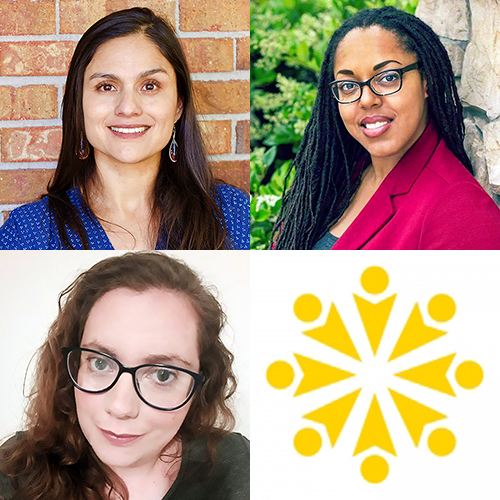
View Details / Enroll
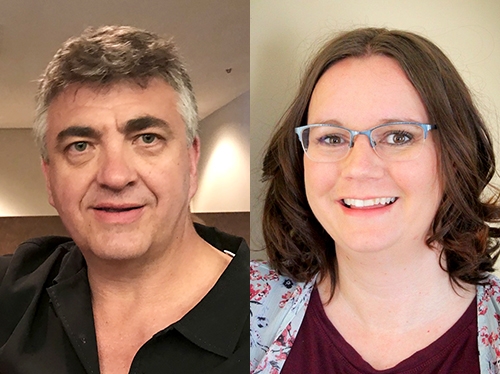
The Value of Prenatal Hand Expression of Colostrum

Naida Hawkins is a Registered Nurse and Lactation consultant in North Battleford, Saskatchewan. She is a passionate registered nurse who has cared for breastfeeding families for 14 years.
Almereau Prollius is an Obstetrician and Gynecologist in Saskatoon, SK. Together with Naida they have a special interest in strategies to promote successful breast feeding and are advocates of prenatal hand expression. They work as part of an interdisciplinary team supporting families to have an easier time starting and continuing breastfeeding.
More Milk Sooner is their program which supports and promotes hand expression in the antenatal and early postpartum period. Based out of Saskatoon and North Battleford in Saskatchewan, they hope to empower patients and care providers to increase successful breastfeeding. They are delighted to be sharing their journey with you. They are actively involved in research reviewing the outcomes of the implementation of the prenatal hand expression education strategy.
Exclusive breastfeeding for the first six months of life is currently recommended by numerous health authorities including the World Health Organization and UNICEF, and should be encouraged and supported prenatally, perinatally and postpartum. Despite these recommendations, the rate of sustained breastfeeding to six months of life remain low. Prenatal hand expression (PHE) is a method used to assist with colostrum collection beginning near term pregnancy. This technique is low-cost and easy to teach and learn. It has been shown to reduce problems with milk stasis, mastitis and breast engorgement by mobilizing colostrum and breastmilk. Learn more about how this technique can improve breastfeeding exclusivity and duration and how to implement it in your practice.

View Details / Enroll
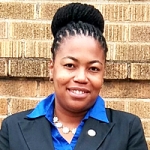
Thinking Outside the Box to Increase Breastfeeding in Communities of Colour

Mother of 6 breastfed children, Tytina is a Certified Lactation Counselor, La Leche League International Breastfeeding Peer Counselor and Program Administrator. Tytina is a Loving Support WIC Peer Counselor and Rush University Medical Center Mother’s Milk Club peer counselor. She is an International Center for Traditional Childbearing provisional Doula. She has 15 years of community-level maternal child health. Her affiliations include Chicago Region Breastfeeding Taskforce, March of Dimes, National Association of Professional and Peer Lactation Supporters of Color, Breastfeed Chicago, the United States Breastfeeding Committee, and GOLD Learning Professional Advisory Committee.
This talk is to stress the importance of breastfeeding in communities where both finances and breastfeeding rates are low. These communities tend to have the highest infant mortality rates. Breastfeeding support programs are almost nonexistent due to lack of funding. This contributes to low initiation of breastfeeding. In these communities the title lactation consultant is foreign. Breastfeeding Peer Counselors reside within these communities; however, there are no employment opportunities. These are actually environmental barriers as well. Living in a community that does not support lactation, makes infant formula appear to be the “norm” for infant feeding. If the community as a whole was aware of the importance of breastfeeding, the whole village could take a stand. Implementing free breastfeeding/mothering support groups, allowing volunteer peer counselors to come in and assist is one approach. It should not take “money” to provide free breast milk.
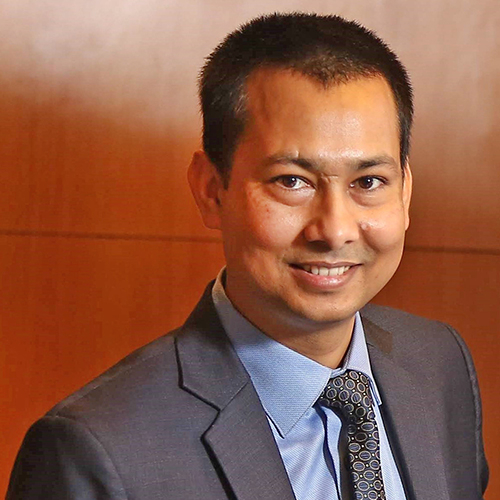
Tongue-Tie and the NICU: A Neonatologist Perspective

Dr. Ankur Bio Update - Dr. Kumar Ankur, MD, DNB is working as an Associate Director & Head of the Department of Neonatology at BLK MAX Super Speciality Hospital Delhi, India. He has been working in the field of neonatology with private and non-goverment organisations for improving neonatal healthcare in the country. He is the national faculty and trainer for FBNC (Facility based neonatal care), Neonatal Resuscitation, Kangarroo Mother Care (KMC) and the national assessor for Neonatology Fellowship accreditation programme of India. He has been invited as an expert speaker, faculty, chairpersons for various national and state level conferences and workshops. He has many publications in national & international journal and authored many chapters, guidelines published by Indian Academy of Pediatrics & National Neonatology of Forum Delhi & India. He is also the co-editor of Handbook of Neonatal Clinical Practices. He is also running training program in neonatal Fellowship for postgraduate students & neonatal nurses. Currently he is also the Secretary of prestigious National Neonatology Forum, Delhi. National Neonatology Forum (NNF) is a strong and large body of more than 8000 neonatologists across India and abroad. NNF has been actively involved in advocacy, policy making, research and ensuring quality health care to newborn for the last 4 decades. He had been past Secretary (2014) & President (2018) of Indian Academy of Pediatrics (IAP), Central Delhi Branch.
Topic: Tongue-Tie and the NICU: A Neonatologist Perspective - [View Abstract]
Tongue Tie is an interesting clinical subject with extreme variability in understanding among lactation consultants, neonatologists, pediatricians, speech therapists, pediatric surgeons, and dental/oral surgeons. There is still no consensus on diagnosis and mode of treatment. However, in recent years there seems to increase reliance on cutting the tie despite the lack of robust evidence. As clinicians, we should always give an unbiased approach towards any neonate's feeding-related problem. Holistic systems like simple bodywork and prolonged skin-to-skin contact, and family involvement can often resolve infant feeding issues. Family-centered care (FCC), based on collaborative participation of the family and a team of health care providers, is found to increase infants' well-being in neonatal critical care units. Our own postgraduate student did her dissertation To Determine the Prevalence of Lingual Frenulum in Infants ≥ 1800 grams of Birth Weight Affecting Breastfeeding (Submitted for Publication). We shall be sharing the Indian data and providing more information about the prevalence of tongue-tie in the NICU, how to distinguish between tongue-tie and other common feeding issues in neonates and the importance of holistic care.
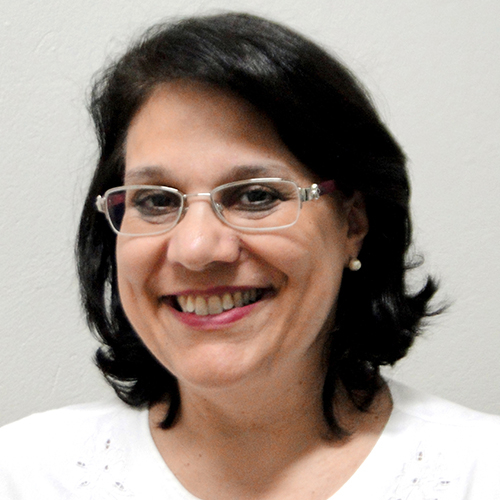
Tongue-tie Assessment Using the Lingual Frenulum Protocol for Infants

SALP expert in Orofacial Myology. PhD in Science USP - University of São Paulo. Chief of lingual frenulum evaluation sector at Santa Therezinha Hospital/ Brazil
Tongue movements are essential for milk extraction during breastfeeding. It is therefore very important that professionals are able to reliably identify anatomical variations in the lingual frenulum that may impact infant feeding. Learn more about how to use the Lingual Frenulum Assessment Protocol for Infants. This tool allows assessment of changes in the lingual frenulum and limitation of tongue movements, which can compromise the functions of sucking, swallowing, chewing, breathing and speaking.
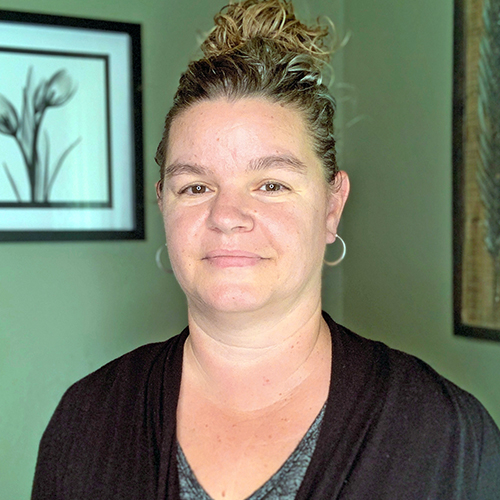
Tongue-Tied and Troubled: A Breastfeeding Journey at Risk

Christine Staricka is a Registered, International Board-Certified Lactation Consultant and trained childbirth educator. As the host of The Lactation Training Lab Podcast, her current role focuses on training and coaching current and aspiring lactation care providers. Christine created and developed The First 100 Hours© concept, an early lactation framework designed to support lactation care providers with the knowledge and mindset they need to help families optimize early lactation. Christine worked as a hospital-based IBCLC for 10 years and has over 20 years experience providing clinical lactation care and support. She provides clinical lactation care to families at Baby Café Bakersfield and serves as its Director. Christine recently completed 6 years of service on the Board of the United States Lactation Consultant Association (USLCA.) She holds a Bachelor's Degree from the University of Phoenix. She has been married for 27 years, lives in California, and is the proud mother of 3 amazing daughters.
Topic: Tongue-Tied and Troubled: A Breastfeeding Journey at Risk - [View Abstract]
Topic: Your Responsibility to the WHO Code: Evaluating Real-World Scenarios for Compliance - [View Abstract]
A suspected or diagnosed tongue-tie can throw a breastfeeding journey into immediate peril, with concerns over the baby's well-being most often discussed and debated. However, without an appropriate and intentional strategy for supporting the mother, the breastfeeding journey risks meeting an untimely, unplanned, and/or unsatisfactory end. The mental and emotional toll such a complex lactation situation can take on parents is wide-ranging in its effects, and it is critical to provide personalized and comprehensive counseling to restore a sense of empowerment and control to the mother as she makes continual decisions on how and whether to proceed with lactation and breastfeeding. Additionally, it is vital that indications of postpartum mood disorders are recognized and addressed as early as they appear. Lactation care providers can benefit from a clear framework for their fundamental responsibility to safeguard both the mother and child in a breastfeeding dyad. In this presentation we will explore ideas and themes that can guide the lactation care provider to ask the right questions at the right times in the specific context of tongue-tie so that they can offer effective counseling and care.





